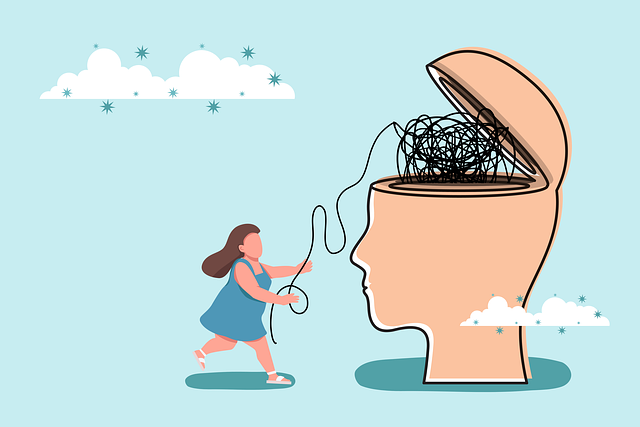Centennial Dialectical Behavioral Therapy (DBT) is an advanced, evidence-based approach to stress management, combining traditional DBT techniques with modern strategies like compassion cultivation and mindfulness exercises. Through structured group sessions, individual therapy, and tailored support services, this holistic therapy equips individuals with coping skills, emotional intelligence, and resilience to effectively manage daily stressors and promote overall mental wellness. By addressing the root causes of stress and enhancing present-moment awareness, Centennial DBT offers long-term solutions for better emotional well-being and confidence in navigating life's challenges.
Stress reduction is a vital aspect of maintaining mental well-being, with methods evolving over time. This article explores two contrasting approaches: traditional therapy and the innovative Centennial Dialectical Behavioral Therapy (DBT). We delve into the causes and effects of stress, offering insights on its understanding. Next, we compare traditional techniques to DBT’s unique strategies for emotion regulation. By integrating mindfulness and learning to manage emotions, DBT provides long-term benefits for sustained mental resilience in today’s demanding world.
- Understanding Stress: Causes and Effects
- Traditional vs. Centennial Dialectical Behavioral Therapy (DBT) Approaches to Stress Reduction
- Techniques and Strategies within DBT for Managing Stress
- Integrating Mindfulness and Emotion Regulation in Daily Life
- Long-term Benefits of DBT for Sustained Stress Management
Understanding Stress: Causes and Effects

Stress is a complex psychological and physiological response to various internal and external factors. It has become an increasingly prevalent issue in modern life, with many individuals experiencing elevated stress levels on a daily basis. Understanding the causes and effects of stress is essential for implementing effective stress reduction methods.
Centennial Dialectical Behavioral Therapy (DBT) offers valuable insights into managing stress. This therapy recognizes that stress often arises from unmet needs, emotional dysregulation, and interpersonal challenges. By identifying triggers and learning healthy coping mechanisms, individuals can improve their self-esteem and enhance their ability to navigate life’s demands. DBT also focuses on reducing the mental illness stigma, which can be a significant barrier to seeking help for stress-related issues. Through evidence-based techniques, it empowers people to take control of their emotional well-being, fostering better stress management and overall mental resilience.
Traditional vs. Centennial Dialectical Behavioral Therapy (DBT) Approaches to Stress Reduction

In the realm of stress reduction, Traditional Dialectical Behavioral Therapy (DBT) and Centennial DBT approaches offer distinct yet effective strategies. Traditional DBT, pioneered by Marsha Linehan, focuses on teaching individuals to regulate emotions, tolerate distress, and improve interpersonal effectiveness using a structured program that includes individual therapy, group skills training, and phone coaching. This approach emphasizes the mind over matter principles, helping clients gain insights into their emotional responses and develop healthier coping mechanisms.
In contrast, Centennial DBT builds upon traditional foundations by integrating new research and cultural perspectives. It prioritizes compassion cultivation practices, encouraging individuals to cultivate self-compassion and empathy towards others. Social skills training remains a core component, but it’s enhanced with mindfulness exercises and strategies tailored to modern challenges. This modern approach recognizes the evolving nature of stress sources in today’s world, aiming to equip individuals with versatile tools to navigate life’s complexities more effectively.
Techniques and Strategies within DBT for Managing Stress

Centennial Dialectical Behavioral Therapy (DBT) offers a range of effective techniques and strategies for managing stress. This therapeutic approach combines cognitive-behavioral techniques with mindfulness practices to help individuals regulate their emotions and navigate challenging situations. DBT teaches coping skills development, enabling people to respond to stressors in healthier ways. Through structured group sessions and individual therapy, clients learn to identify triggers, build resilience, and enhance emotional intelligence.
One key aspect of DBT is its emphasis on mindfulness, which encourages individuals to stay present and observe their thoughts and feelings without judgment. This practice helps to reduce rumination and increases the ability to make mindful choices in stressful situations. Additionally, trauma support services within DBT can be tailored to address past traumatic experiences, further enhancing an individual’s coping abilities and promoting mental wellness. The holistic approach of DBT, often supplemented by a Mental Wellness Podcast Series Production, empowers individuals to take control of their stress levels and lead more balanced lives.
Integrating Mindfulness and Emotion Regulation in Daily Life

In today’s fast-paced world, stress reduction has become a paramount concern for many individuals. Integrating mindfulness and emotion regulation techniques offers a powerful approach to managing daily stressors. Centennial Dialectical Behavioral Therapy (DBT) provides a structured framework for achieving this balance. By focusing on the present moment and cultivating awareness of one’s thoughts and emotions, individuals can develop resilience against life’s challenges.
Mindfulness practices enable people to observe their feelings without judgment, leading to better emotional well-being promotion techniques. DBT’s emphasis on emotion regulation helps individuals understand and manage their emotional responses, thereby boosting confidence in navigating difficult situations. This holistic approach not only reduces stress but also fosters a sense of control and equanimity, ultimately enhancing overall quality of life.
Long-term Benefits of DBT for Sustained Stress Management

Centennial Dialectical Behavioral Therapy (DBT) offers long-term benefits for sustained stress management. This evidence-based approach goes beyond addressing immediate symptoms by teaching individuals valuable skills to navigate and regulate their emotions effectively. DBT empowers people with emotional intelligence, enabling them to respond to stressful situations with clarity and composure, rather than reacting impulsively.
By integrating mindfulness practices, distress tolerance strategies, and effective communication techniques, Centennial DBT provides robust trauma support services that promote emotional regulation. This holistic approach not only helps individuals manage current stress levels but also fosters resilience, ensuring they can confront future challenges with enhanced coping mechanisms.
In conclusion, both traditional and Centennial Dialectical Behavioral Therapy (DBT) offer powerful tools for managing stress. DBT’s comprehensive approach, integrating mindfulness, emotion regulation, and distress tolerance techniques, has proven effective in the long term. By fostering better coping strategies, enhancing emotional awareness, and promoting a balanced perspective, DBT empowers individuals to navigate life’s challenges with resilience. Adopting these evidence-based practices can lead to sustained stress reduction, improved mental well-being, and a more fulfilling life.














